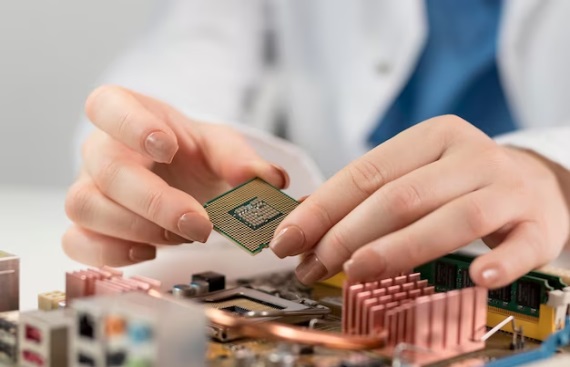ISRC to Play a Central Role in Advancing India's Chip Expertise
By
siliconindia | Saturday, 21 October 2023, 01:34 Hrs

Rajeev Chandrasekhar, the Union Minister of State for Electronics & IT, has noted that the India Semiconductor Research Centre (ISRC) is set to be India's counterpart to renowned institutions like the Interuniversity Microelectronics Centre (IMEC) in Europe, Nano Tech, the Industrial Technology Research Institute (ITRI) in Taiwan, and the MIT Micro-electronic labs in the United States, which have been at the forefront of pioneering cutting-edge technologies.
The India Semiconductor R&D Committee has presented the ISRC report to the minister, emphasizing that ISRC will be a fundamental institution in India's advancing semiconductor capabilities. Rajeev Chandrasekhar, the Union Minister of State for Electronics & IT, highlighted the extensive research undertaken over several months by the India Semiconductor R&D Committee, which has outlined a roadmap for ISRC. This roadmap aligns with Prime Minister Narendra Modi's vision for the semiconductor ecosystem, recognizing the need to catch up after India's absence from the semiconductor arena for many decades, during which numerous opportunities were missed.
The minister expressed his appreciation for the comprehensive work of the committee members in identifying the foundational elements of ISRC, which encompass areas such as Advanced Silicon, Packaging R&D, Compound/Power Semiconductor, and Chip design & EDA. He underlined that the ISRC report is part of a decade-long strategy that will have a significant impact on India, benefitting young Indian scientists, researchers, and startups. This strategy is aligned with the Prime Minister's vision for 'Viksit Bharat.' Additionally, the minister emphasized that in the next 4-5 years, ISRC is poised to become one of the world's leading semiconductor research institutions.
In December 2021, the government allocated Rs 76,000 crore (US$10 billion) to stimulate the semiconductor manufacturing ecosystem in India. The minister noted that ISRC is a vital component of the government's step-by-step approach to establish India as a global hub for semiconductor research and innovation. ISRC's vision includes the establishment of a top-tier research institution with a focus on semiconductor processes, advanced packaging, compound semiconductors, as well as Fabless design and EDA tools.
Through fostering collaboration between industry, academia, and government, ISRC aims to cultivate a dynamic semiconductor ecosystem. It is expected to facilitate a smooth transition from laboratory research to fabrication, bridging the gap between research and manufacturing. ISRC's strategic approach involves targeted investments in attainable technology nodes and the promotion of partnerships with global research centers, educational institutions, and industry. The initiative seeks to elevate India's academic institutions' centers of excellence into globally competitive entities, with the aim of attracting global companies to invest in India.
